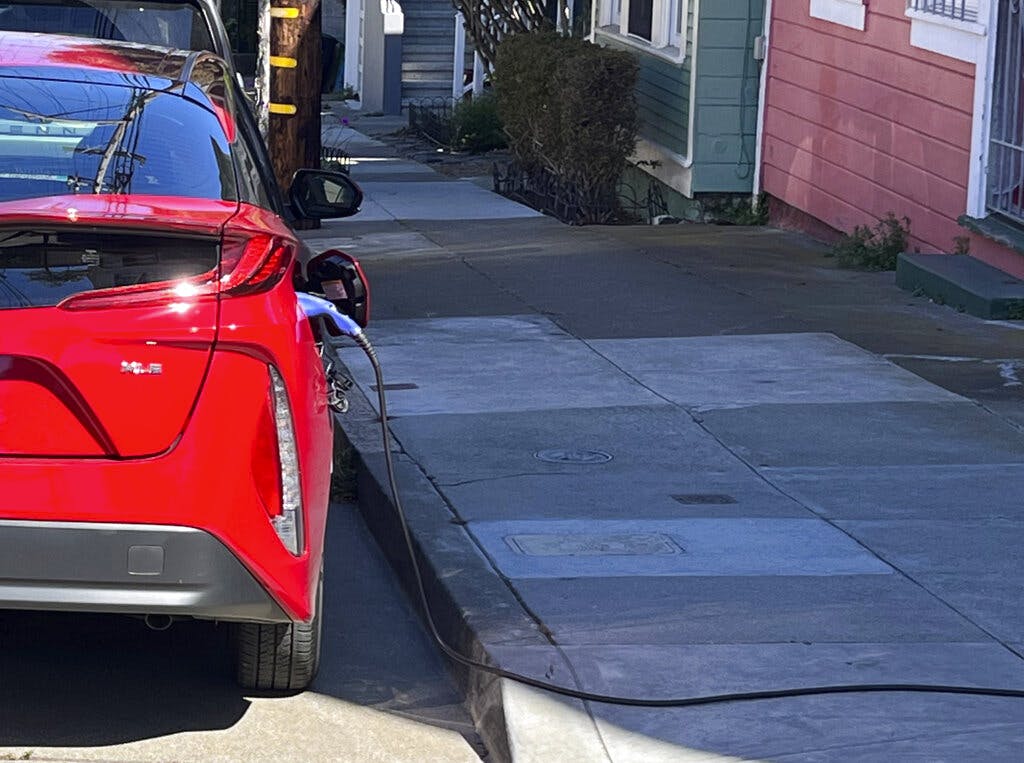Alarm Sounded Over Chinese ‘Trojan Horses’ Masquerading as Electric Vehicles
Vehicles with advanced sensors and camera technology could conceivably function as rolling cameras, photographing critical infrastructure and reporting back to a central database.

A Republican lawmaker is warning that America’s love affair with Chinese-made electric vehicles is allowing free rein to potential Trojan horses capable of hoovering up mountains of data and reporting back to Beijing.
In a letter to the National Highway Traffic Safety Administration, Congressman August Pfluger of Texas said he is particularly concerned about the proliferation of self-driving “autonomous vehicles” being tested on American highways, in California and elsewhere. The substance of the letter was first reported by Wired magazine.
While praising the potential for these vehicles to liberate disabled drivers and improve overall highway safety, Mr. Pfulger said he is “concerned that a lack of U.S. oversight in AV technology has opened the door for a foreign nation to spy on American soil, as Chinese companies potentially transfer critical data to the People’s Republic of China.”
“The potential transfer of critical data to China constitutes a serious national security threat to our country,” he said. “Republican leaders on the Energy & Commerce Committee have repeatedly flagged considerable concerns regarding Chinese-owned companies transferring Americans’ data back to China, and such AV companies with Chinese relationships pose a similar national security risk.”
While Elon Musk’s Tesla is the world leader when it comes to self-driving technology, a number of Chinese companies are not far behind. An SUV produced by Guangzhou-based XPeng is that country’s first mass-produced autonomous vehicle to pass government-mandated tests, and the company plans to use the technology to build a fleet of robotaxis for both domestic and international markets.
The technology is in an embryonic phase, but tests are ongoing across the country. In 2020, one Chinese company, AutoX, received permission from the state of California to test driverless vehicles at San Jose. Another firm with Chinese ties, Pony.ai, is testing self-driving cars at Tucson, Arizona, and in California. Pony is the eighth company to receive approval from regulators to test its technology in California.
Mr. Pfluger expressed concern that unless some sort of guardrails as to what data are collected by those vehicles and what happens to that data, China could essentially be sending fleets of spy vehicles across the Pacific. Vehicles with advanced sensors and camera technology could conceivably function as rolling cameras, photographing critical infrastructure and reporting back to a central database — not to mention being able to access the email, text messages, and other communications of their owners.
“Chinese companies make clear that, absent American leadership, the CCP views autonomous and connected vehicles as a pathway to incorporate their systems and technology into our country’s infrastructure,” Mr. Pfluger said.
China is already keenly aware of such potential problems and is acting accordingly. Tesla vehicles were banned from entering the resort city of Beidaihe for two months ahead of this summer’s meeting of the Chinese leadership out of concern that the vehicles could be used to spy on the proceedings, and last year the People’s Liberation Army prohibited Tesla owners from parking their vehicles on its bases and military housing around the country.
Mr. Pfluger is not the only lawmaker or regulator expressing concern about Chinese technology on American soil. In testimony on Capitol Hill last week, the FBI director, Christopher Wray, said his agency has “scores” of ongoing investigations into Chinese espionage in America, and that China’s “vast hacking program is the world’s largest by a mile, and they have stolen more of Americans’ personal and business data than every other nation combined.”
Lawmakers have also raised concerns about the popular video app TikTok’s collection and retention of the data of millions of its users. The chairman of the Senate Intelligence Committee, Mark Warner, called the app “an enormous threat” during an appearance on Fox News Sunday over the weekend.
“I think Donald Trump was right,” the Virginia Democrat said, referring to the former president’s stated intention — never fulfilled — to ban the app. “If you’re a parent, and you’ve got a kid on TikTok, I would be very, very concerned. All of that data that your child is inputting and receiving is being stored somewhere in Beijing.”

